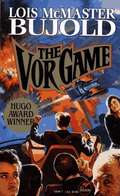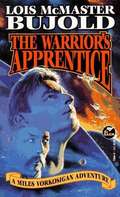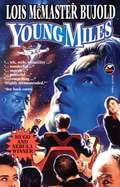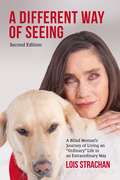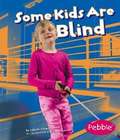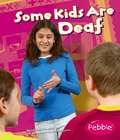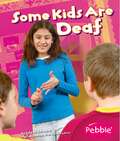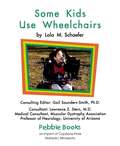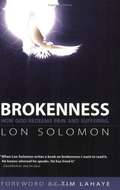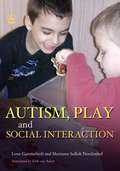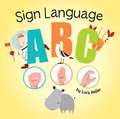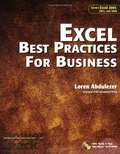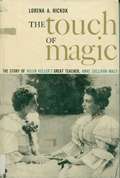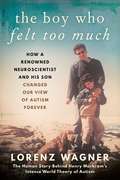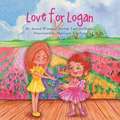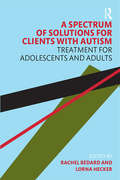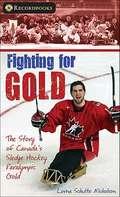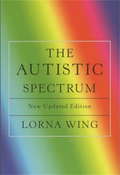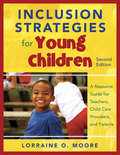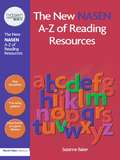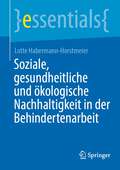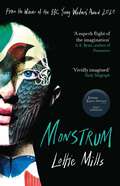- Table View
- List View
The Vor Game (Miles Vorkosigan #2)
by Lois Mcmaster BujoldMiles Naismith Vorkosigan was not a mutant, though he was often mistaken for one. His home, Barrayar, was a militant world shaped by a bitter history and political strife. Years earlier, an assassin had chosen poison gas for an attack on Aral Vorkosigan, former Regent of the Barrayaran Empire -- now Prime Minister -- and the pregnant Lady Cordelia.<P><P> They survived; unborn Miles was the terrorist's only real victim. Cursed with brittle bones that neither grew nor healed properly, a dwarf-like body and a face prematurely lined with the agony of too many corrective surgeries--and too many people who could not accept his difference -- Miles refused to hide behind his Vor rank. With a brilliant mind, courage honed by a desire for adventure, and an ever-ready sense of the absurd, he carved out his own place in the galactic scheme...<P> It was just after his hard-won graduation from the Imperial Academy and before he began active duty that Miles met the hill woman. Distraught, she claimed her husband had murdered their baby daughter, who'd been born (continued on back flap) (continued from front flap) defective -- an old back-country practice for culling mutants, now illegal but impossible to stamp out. The woman demanded Lord Vorkosigan's justice, and she was no less surprised than Miles himself when he was appointed his father's Voice in the matter. But he did indeed exact justice -- for the sake of a child whose needless death would haunt him all his days...<P> Hugo Award winner.
The Warrior's Apprentice (Miles Vorkosigan #1)
by Lois Mcmaster BujoldWhen Miles Vorkosigan fails the military academy's entrance exams because of his physical disabilities, he looks elsewhere for a purpose. Through an escalating series of choices and circumstances, he finds himself involved in a space war, leading a large mercenary fleet. The only problem is, it is treason--as in, a hanging offense--to command a private army. This is the first book featuring Miles in the Vorkosigan series.
Young Miles (Miles Vorkosigan)
by Lois Mcmaster Bujold3 stories: The Warrior's Apprentice, The Mountains of Mourning, and The Vor Game. More adventures of Miles Vorkosigan aka Admiral Naismith.
Double Blessing: An Intimate Story Of Raising Two Severely Disabled Children
by Lois PalmerStill my thoughts drift back to the moment Leah was born. A few hours before that moment, Leah was a petite, innocent baby wiggling her toes, swimming around in my womb. But as she was being born God opened a gate that led into a mysterious, dark forest, and in faith my family and I were asked to enter in.
A Different Way of Seeing: A Blind Woman's Journey Of Living An Ordinary Life In An Extraordinary Way
by Lois StrachanEndorsed by the South African National Council for the Blind, and the South African Guide-Dogs Association for the Blind. Have you ever wondered how a blind person pours a cup of coffee? Or how they and their guide dog know when it’s safe to cross a busy road? When Lois Strachan lost her sight at the age of 21 years, she had to learn the answers to these and countless other questions of how to live as a blind person in a sighted world. In this delightfully quirky and entertaining book, Lois shares some of the secrets she discovered about how to live an "ordinary" life in an extraordinary way despite her blindness.
The Opening Doors: My Child's First Eight Years Without Sight
by Lois T. HendersonIn the early 1950's, the author couldn't find books about blind children, so she wrote about her own son. Through a mother's eyes, we follow the growth of this new family as they learn, along with Davey, how to function in the sighted world.
Some Kids Are Blind
by Lola M. SchaeferDescriptions of children who are blind, their challenges and adaptations, and their similarities with others.
Some Kids Are Deaf
by Lola M. SchaeferSimple text and photographs describe kids who are deaf, the ways they communicate, and some of their everyday activities. Note to Parents and Teachers The Understanding Differences set supports national social studies standards related to individual development and identity. This book describes children who are deaf and illustrates their special needs. The photographs support early readers in understanding the text. The repetition of words and phrases helps early readers learn new words. This book also introduces early readers to subject-specific vocabulary words, which are defined in the Glossary. Early readers may need assistance to read some words and to use the Table of Content's, Glossary, Read More, Internet Sites, and Index sections of the book.
Some Kids Are Deaf (Understanding Differences)
by Lola M. SchaeferTeach diversity and inclusivity to very young readers. In simple language, these texts explain how kids with disabilities participate in everyday life. <p><p> Teaching a tough subject in a simple format, these books are an asset to any library or bookshelf. This series explores and supports the standard "Individual Development and Identity," as required by the National Council for the Social Studies.
Some Kids Use Wheelchairs: A 4d Book (Understanding Differences)
by Lola M. SchaeferWhat is it like to use a wheelchair? This book answers this question for young readers. Other books in the Understanding Differences series are available in this library.
Brokenness: How God Redeems Pain and Suffering
by Lon SolomonPastor Lon Solomon tells how God shattered him through his severely disabled daughter, and how pain and suffering are part of God's plan to bring us closer to Him.
Adventures with Buster: The Adventures Begin with a Guide Dog Named Buster
by London Lake Pickett"Adventures with Buster" is a children's book that will entertain and educate readers about guide dogs and blindness. This is the first book in which London Lake Pickett shares experiences she has had with her guide dog named Buster.
Autism, Play and Social Interaction
by Marianne Sollok Nordenhof Lone GammeltoftAutism, Play and Social Interaction is a fully illustrated guide that explains how to help children with autism spectrum disorders engage in interactive play, which is vital for the acquisition of social skills and attention to shared activities. The authors explain how to set up suitably structured play environments, games schedules and play routines, and how to use visual aids and other props to facilitate co-operative play and interaction. Common children's games have been adapted to accommodate children with autism spectrum disorders and range from simple interaction, such as `putting-in' and `give and take', to more complex games like `hide and seek', `sound-lotto' and `spin the bottle', as well as games that teach social behaviour, such as exchanging toys and engaging with other children for play opportunities. This is a practical and accessible book for parents and teachers of children with autism spectrum disorders, as well as professionals working with these children.
Sign Language ABC
by Lora HellerBold and bright, hip and cool, this striking ABC book is like none other: each page teaches children the American Sign Language alphabet through a combination of letters, hand spelling, and adorable illustrations.
Excel Best Practices for Business
by Loren AbdulezerHow to create, manage, and validate spreadsheets that will stand up to scrutiny and provide a clear and accurate picture of your enterprise.
The Touch of Magic
by Lorena A. HickokThe story of Helen Keller's great teacher, Anne Sullivan Macy
The Boy Who Felt Too Much: How a Renowned Neuroscientist and His Son Changed Our View of Autism Forever
by Lorenz WagnerAn International Bestseller, the Story behind Henry Markram&’s Breakthrough Theory about Autism, and How a Family&’s Unconditional Love Led to a Scientific Paradigm Shift Henry Markram is the Elon Musk of neuroscience, the man behind the billion-dollar Blue Brain Project to build a supercomputer model of the brain. He has set the goal of decoding all disturbances of the mind within a generation. This quest is personal for him. The driving force behind his grand ambition has been his son Kai, who has autism. Raising Kai made Henry Markram question all that he thought he knew about neuroscience, and then inspired his groundbreaking research that would upend the conventional wisdom about autism, expressed in his now-famous theory of Intense World Syndrome. When Kai was first diagnosed, his father consulted studies and experts. He knew as much about the human brain as almost anyone but still felt as helpless as any parent confronted with this condition in his child. What&’s more, the scientific consensus that autism was a deficit of empathy didn&’t mesh with Markram&’s experience of his son. He became convinced that the disorder, which has seen a 657 percent increase in diagnoses over the past decade, was fundamentally misunderstood. Bringing his world-class research to bear on the problem, he devised a radical new theory of the disorder: People like Kai don&’t feel too little; they feel too much. Their senses are too delicate for this world.
Love For Logan
by Lori Demonia Monique TurchanLove for Logan is an inspirational story based on actual events. A young girl learns to better understand why day to day life can be challenging for her older sister. While sharing a special night, the story embraces how one girl's love for her sister empowers her to overcome one of life's obstacles.
A Spectrum of Solutions for Clients with Autism: Treatment for Adolescents and Adults
by Lorna Hecker Rachel BedardThis book is a comprehensive resource to guide work with individuals on the autism spectrum. It reflects the true range of needs presented by individuals with autism, pulling together the most salient aspects of treatment with invaluable information from several disciplines synthesized to guide your work. Divided into topical sections with chapters from three field experts in each, this book features contributions from therapists, educators, and medical doctors, as well as financial planners, health advocates, and innovators. The diverse disciplines and backgrounds of each author lend a different voice and perspective to each chapter, reflecting the continuum of care necessary when working with clientele on the autism spectrum, and that, for clients on the spectrum, one solution does not fit all. For use by psychotherapists, counselors, applied behavioral analysts, occupational therapists, social workers, teachers, and more, this text presents readers with expertise from various contributing disciplines to give them a treatment resource that can inform and guide their daily work with clients on the autism spectrum.
Fighting for Gold: The Story of Canada's Sledge Hockey Paralympic Gold
by Lorna Schultz NicholsonCanada is recognized as a leader in men's and women's hockey - but in 2006 Canada had yet to conquer the world of sledge hockey, the Paralympic version of ice hockey played by athletes with a physical disability in the lower part of the body.
The Autistic Spectrum: Revised edition
by Lorna Wing'Authoritative, compassionate and commonsensical . . . an honest, sensitive and thorough introduction to understanding and living with autism . . . highly recommended.' - Psychological Medicine'Packed with down to earth, practical ideas . . . readable, interesting . . . informative . . . if you buy only one title about autism this year it should be this one.' - Collette Dritte, Nursery WorldOver 500,000 people of all ages in the UK have disorders in the autistic spectrum. About one-third also have varying degrees of learning difficulty. All have impairment of social interaction, communication and imagination - the world appears a bewildering and sometimes frightening place. This acclaimed, authoritative guide explains how people with autism experience the world and why they need an organized, structured environment, presenting a window into the world of those with the disorder. Wing suggests ways of improving communication, developing abilities and widening social interaction, and how to cope with stresses within the family.
Inclusion Strategies for Young Children: A Resource Guide for Teachers, Child Care Providers, and Parents
by Lorraine O. Moore"This book makes inclusion a much easier way to work with children than the resource room of the past. It places the responsibility of adaptation on the teachers and the school system versus the old method of pounding a square peg into a round hole. I truly appreciated the detailed description of the learning cycle and will use it in my own lesson plans beginning tomorrow!"—Stacey B. Ferguson, Multiage Teacher North Bay Elementary School, Bay Saint Louis, MSConcrete methods for enhancing young children′s growth and development!This user-friendly book helps general and special education teachers work with 3- to7-year-olds in school programs, early childhood settings, and other inclusive settings designed to meet the needs of young children. Lorraine O. Moore provides more than 350 proven strategies to promote success for beginning learners, especially those who have special needs. This second edition contains updated information on IDEA 2004, resource listings of organizations, a glossary, and reproducible handouts for students and parents. Comprehensive in its approach, this invaluable resource offers current brain research about learning and behavior challenges, individual chapters on assessment and specific disabilities, and developmentally appropriate practices to help children:Increase large and small motor skills Develop emotionally and socially Acquire better communication, listening, and attention skills Work toward self-management of behaviors Develop preparatory reading, writing, and math skillsInclusion Strategies for Young Children gives adults the essential tools to help young children attain their full potential in school and all areas of their lives.
The New nasen A-Z of Reading Resources (nasen spotlight)
by Suzanne Baker Lorraine PetersenThe New nasen A-Z of Reading Resources is a graded list of all current reading schemes complete with guidance on the books’ suitability for readers at different levels of experience and competence. It will: enable teachers, SENCos and support services to choose books that are appropriate yet sufficiently rewarding for struggling readers prove to be a time-saving resource for schools replenishing their reading stock follow up-to-the-minute thinking on ‘readability’. A great resource for all schools - primary and secondary - as well as support services, advisers and literacy consultants.
Soziale, gesundheitliche und ökologische Nachhaltigkeit in der Behindertenarbeit (essentials)
by Lotte Habermann-HorstmeierUm Menschen mit geistiger Behinderung ein nachhaltiges, gesundes Leben zu ermöglichen, braucht es eine nachhaltig gesundheitsfördernde Lebenswelt, die in ein gesundes Ökosystem eingebettet ist, sowie eine sie tragende Gesellschaft, die das Wohl aller Menschen und die Unversehrtheit ihrer natürlichen Umwelt im Blick hat.
Monstrum: Longlisted for the 2025 Dylan Thomas Prize
by Lottie Mills* From the winner of the BBC Young Writers' Award 2020 * What does it mean to be different in a world that values perfection, at any cost? 'Lottie's writing is a superb flight of the imagination' A.S. Byatt, author of Possession 'Haunting, luridly beautiful, and at times shockingly, deliciously gruesome&’ Jenn Ashworth, author of Ghosted A 'Best Book for May 2024' according to Cosmopolitan From Lottie Mills, the winner of the BBC Young Writers' Award in 2020, comes this beautifully crafted collection of stories. A father and daughter build a life for themselves on an isolated beach. But the outside world is pressing in. It's only a matter of time before their secret refuge is discovered. A young disabled woman opts to receive a perfect, pain-free body. Soon, however, she finds herself haunted by the one she cast off. A travelling circus master discovers the ideal addition to his cabinet of curiosities: 'damaged', 'grotesque', gifted. He plans to make her the star of his show; she plans to take her revenge. Monstrum captures the experience of characters excluded by a society that cannot accept their difference. Eerie, fantastical and hugely ambitious, this collection announces the arrival of an outstanding new literary voice. 'Lottie's stories reminded me of what matters' Claire Oshetsky 'Magical and haunting' Jan Carson
